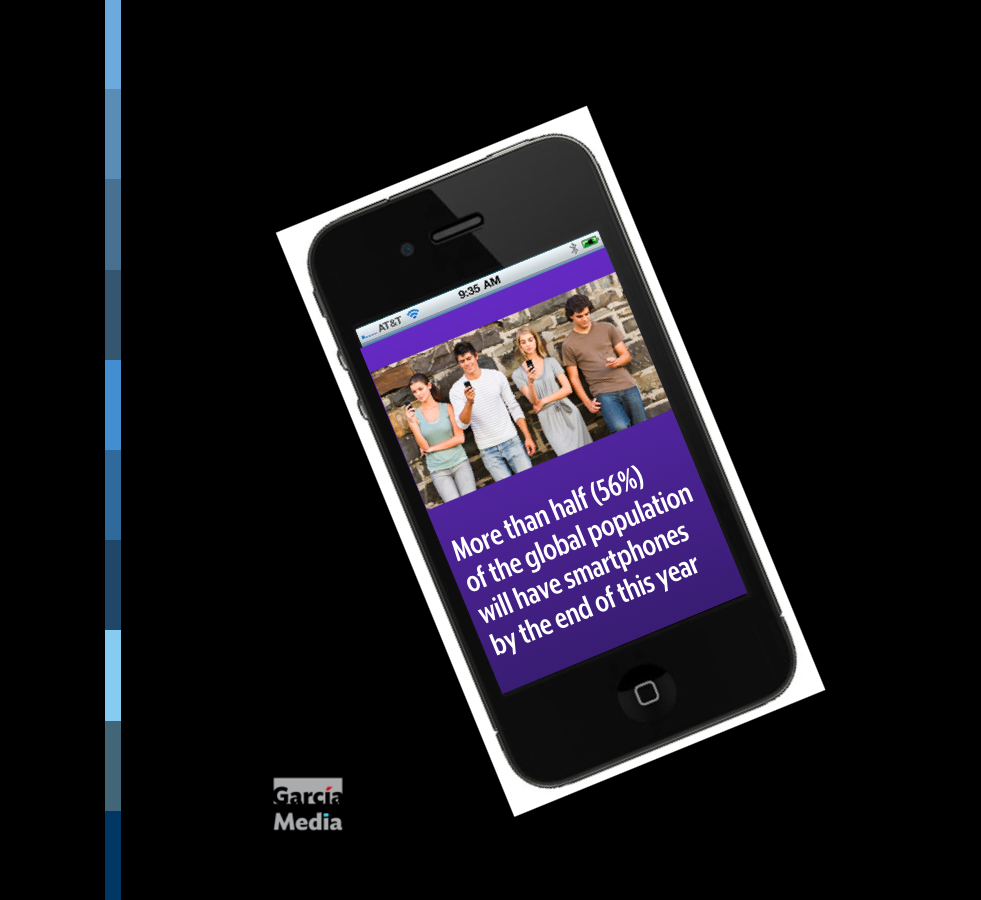
Only last week, during an information session with prospective students of my Columbia class, Multiplatform Design & Storytelling, I told students that I plan to refocus the course more toward mobile.
Mobile it is, both for storytelling and design and I plan to put the emphasis of all weekly assignments and major projects on how to better serve those members of the audience who will come to read our stories on a mobile platform.
That is why I find this piece from Media Post interesting and timely. Here are some highlights:
1. More than half (56%) of the global population will have smartphones by the end of this year, according to ZenithOptimedia’s (ZO) annual New Media Forecast, which covers digital marketing behaviors in 47 countries.
2. Singapore leads the way where smartphone penetration will reach 91%. Worldwide, smartphone penetration is increasing from 41.6% in 2013 to an expected 66.5% by 2018. Spain and Ireland follow close behind with 86.7% and 83%, respectively. The other top ten markets include South Korea, Norway, Japan, Austria, Sweden, the Netherlands and Hong Kong.
3. For those who are giving up on tablet editions, here is some optimistic news. Although tablet usage remains small compared to smartphones, this category is also growing in popularity — as penetration has nearly tripled from 5.3% in 2012 to 14.8% in 2014. ZO predicts tablet usage will reach 19.8% in 2018. Asia and Europe are leaders in tablet adoption with 77% of Hong Kong residents using tablets in 2015, which is expected to increase to 91% in 2018.
There is no doubt that smartphones will be the hot topic for editors, publishers and advertisers in 2016. WE will see more innovative work in the area of design, storytelling and advertising for mobile platforms.
The students in my course should be able to provide some interesting ideas along these lines.
Related: Millennials Give Smartphones a Thumbs Up
http://www.capitalnewyork.com/article/media/2015/11/8583847/millennials-give-smartphones-one-thumb
The numbers tell the story:
Worldwide, the latest research pegs daily smartphone usage among the young at 3.2 hours a day, or the equivalent of almost one day per week (22.4 hours). Those aged 46-65 spend a paltry 1.5 hours, that and creeping arthritis explaining their lack of dexterity.
…but don’t kiss print goodbye just yet
http://www.inma.org/blogs/print-innovations/post.cfm/why-print-news-still-deserves-the-spotlight
Summary highlight:
Despite a changing media landscape, print newspapers offer a sense of clarity and command a particularly high degree of engagement. On the days that people read their newspapers, they spend an average of 70 minutes with them. Another bonus: print advertising is free of ad-blocking.